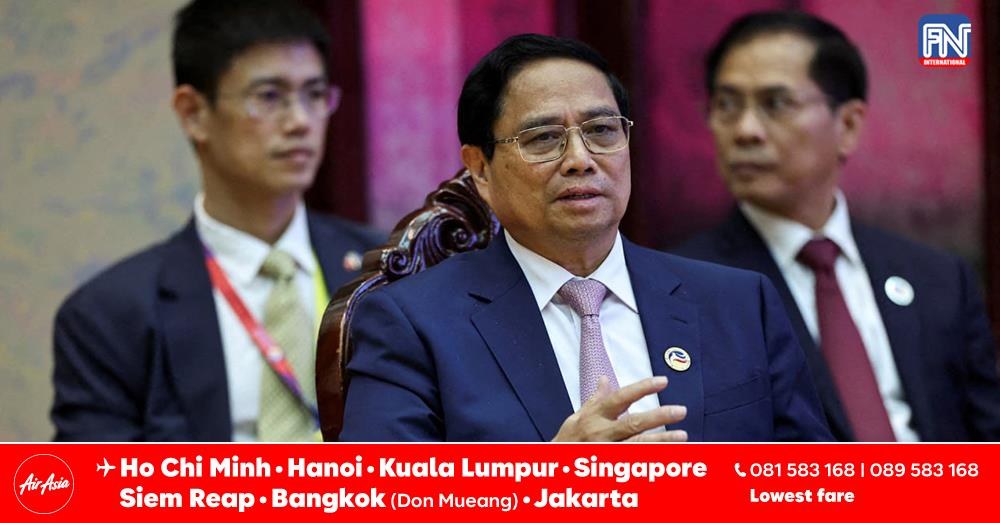HANOI, Mar. 14 (Reuters) - Vietnam is reviewing its duties on U.S. goods, including on liquefied natural gas, agriculture and high-tech products, Prime Minister Pham Minh Chinh told the U.S. ambassador to the country, a report on the government's website said.
The Southeast Asian industrial hub, which is heavily reliant on exports to the United States and has a large trade surplus with Washington exceeding $123 billion in 2024, is scrambling to avoid reciprocal tariffs that the Trump administration has threatened globally to reduce America's trade deficit.
Chinh said "relevant ministries, sectors and agencies are actively reviewing import tariffs on goods from the United States, encouraging increased imports of key U.S. products that Vietnam needs, especially agricultural products, liquefied gas and high-tech products," the report on the government portal said.
Chinh met U.S. ambassador Marc Knapper on Thursday.
A delegation led by Vietnam's trade minister Nguyen Hong Dien is currently in the United States and plans meetings with top trade and energy officials with the aim of reaching deals, according to a Vietnam's government document seen by Reuters.
Vietnamese officials have repeatedly indicated their will to meet U.S. requests on reducing trade imbalances and facilitate U.S. business in the country, including by pledging a quick licensing process for Elon Musk's Starlink satellite services.
Vietnamese imports of U.S. LNG have often been mentioned by Vietnamese and U.S. officials as a means to reduce the large trade gap, but no concrete steps have been taken yet.
The Vietnamese fledgling LNG industry currently relies on short-term deals for small shipments, rather than multi-year contracts preferred by U.S. exporters.
In February, the trade minister said Vietnam was ready to import more farm products from the United States.
More than one-fourth of U.S. exports to Vietnam last year were agricultural products, mostly cotton, soybeans and tree nuts, for a total value of $3.4 billion, according to U.S. government data.
Vietnam is also keen to import more U.S. high-tech products, including AI-grade chips, but faces restrictions on accessing the most advanced semiconductors under rules adopted by the Biden administration.

Photo from Reuters




